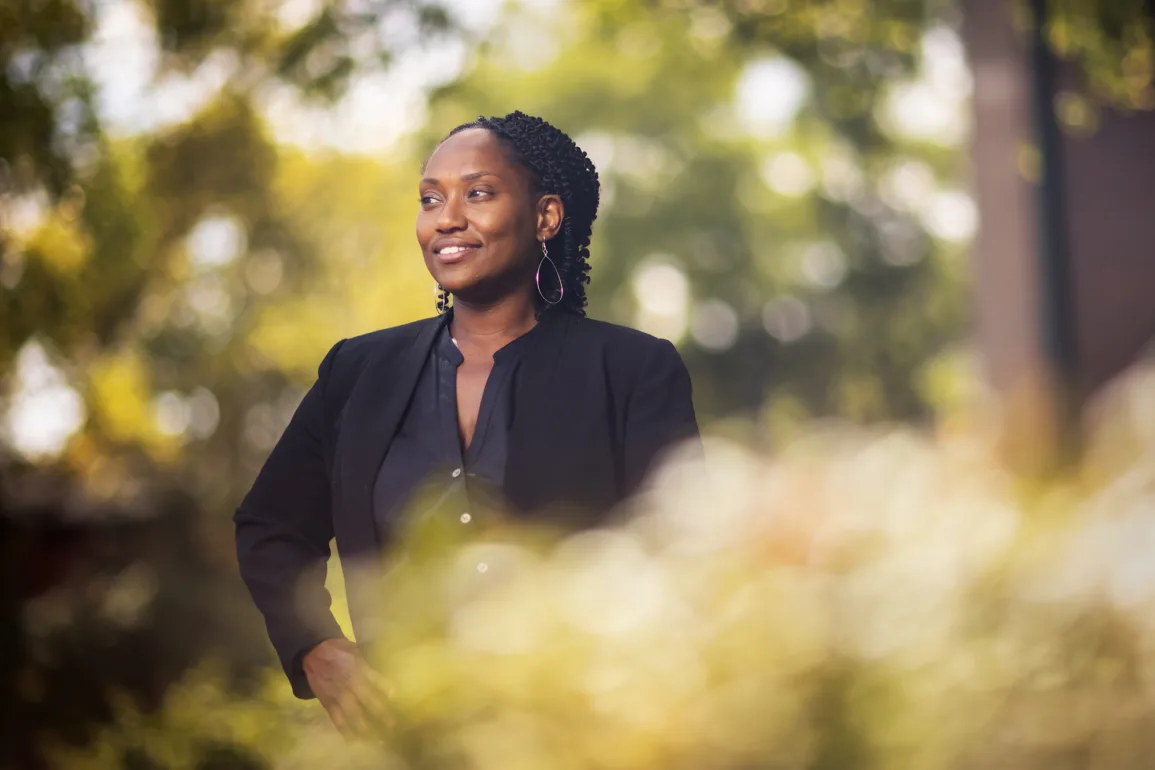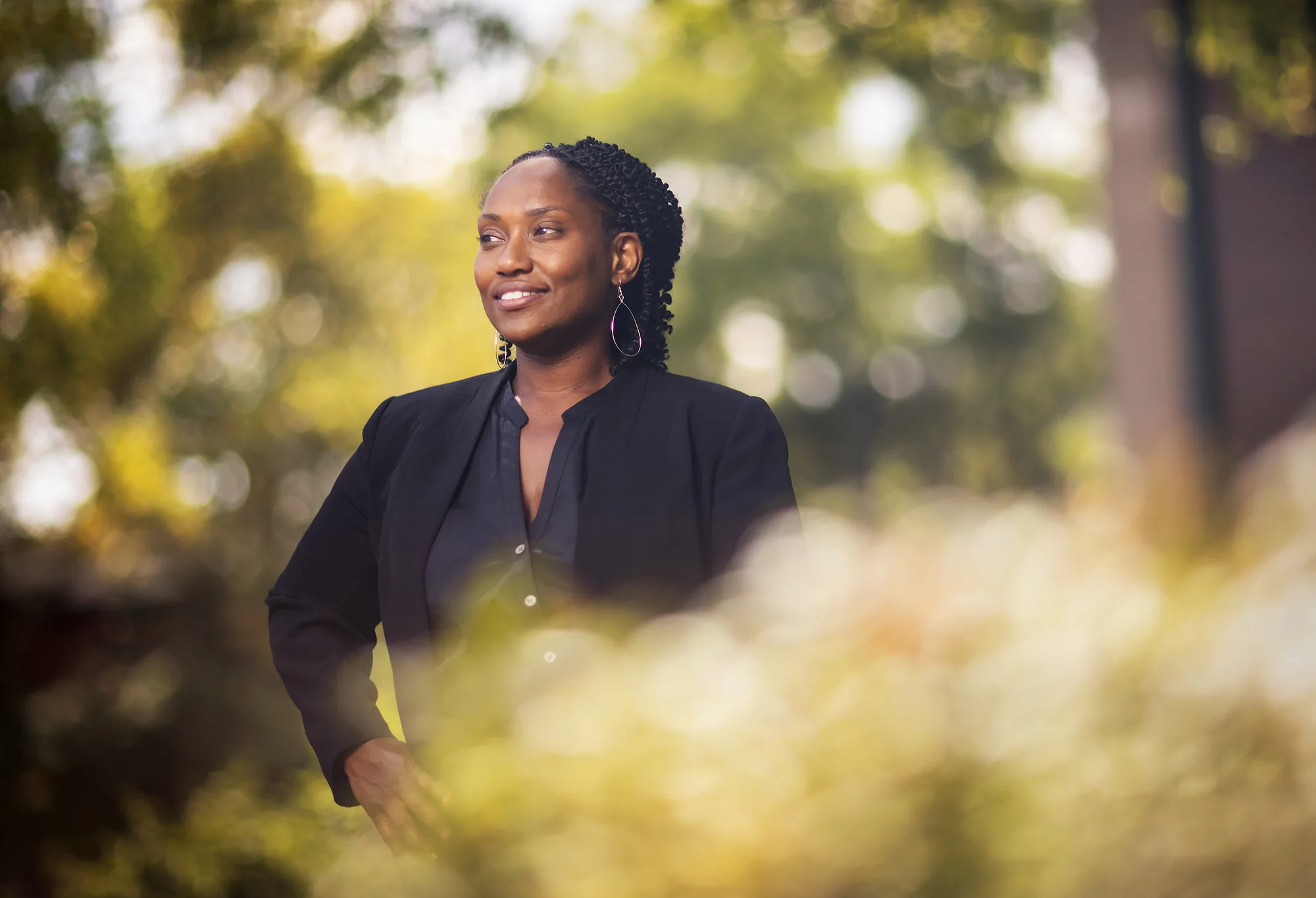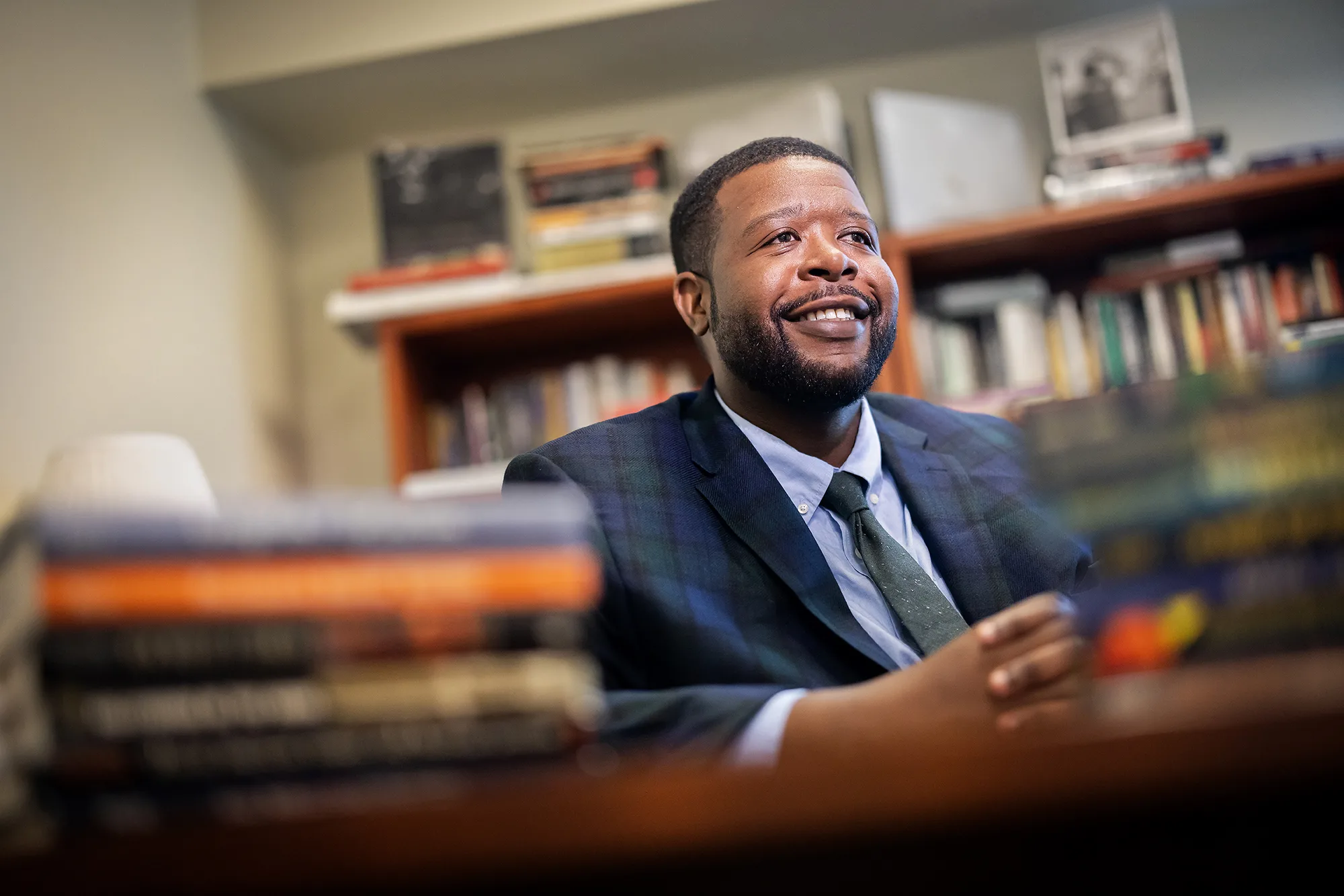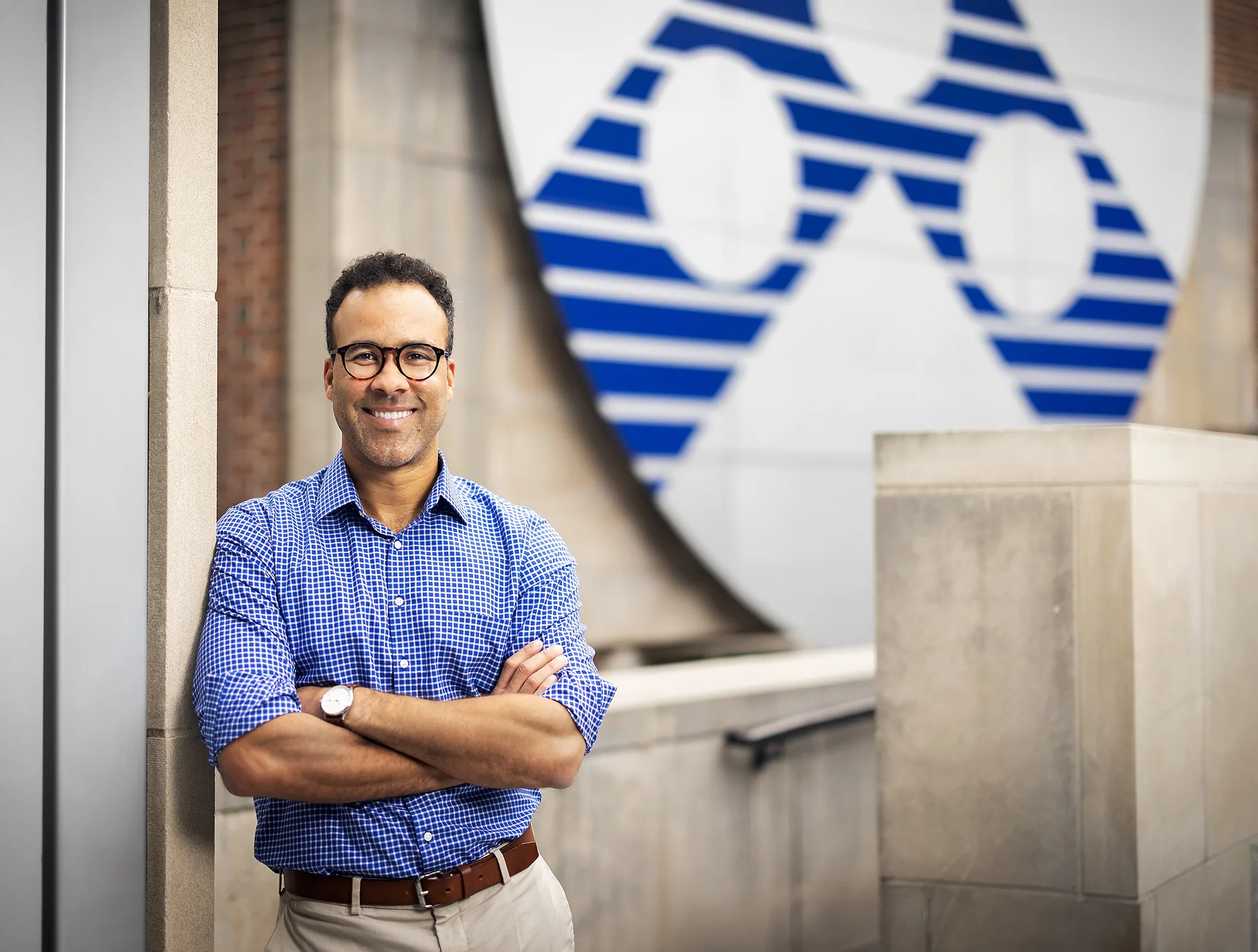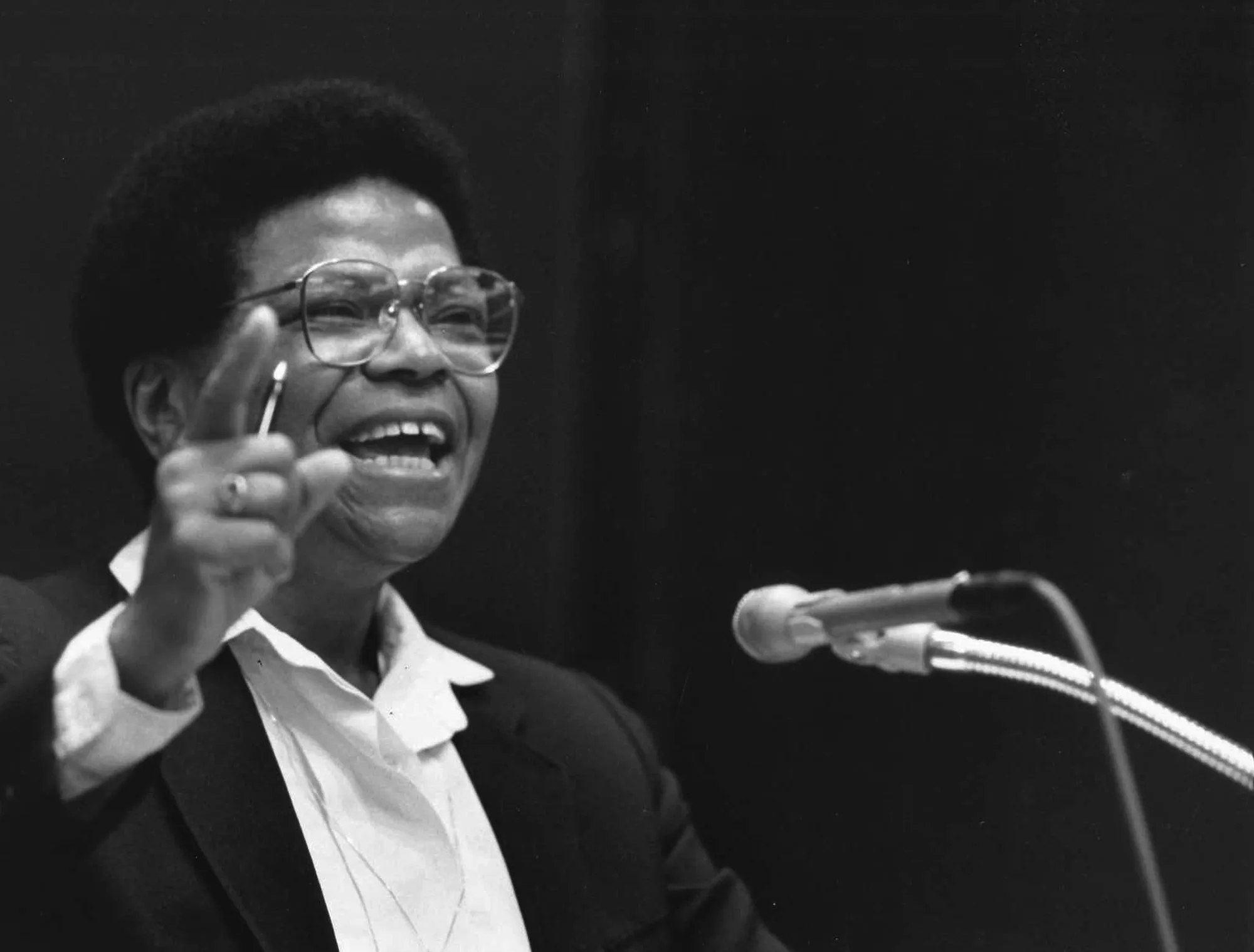Penn has been offering public lectures on the African American experience since the 1890s, but it wasn’t until almost eight decades later that the first official African American history course was offered at Penn, in 1968. Fast forward to today, where a strong faculty, innovative class offerings, and important new hires in Africana Studies and the History Department in the School of Arts & Sciences are combining to make Penn one of the best places for the field of African American history.
Camille Z. Charles, chair of the Department of Africana Studies, says the faculty in her department “are well-equipped to assess and explain the vast diversity of the global Black experience, rivaling any institution in the United States,” and provide both undergraduate and graduate students with exceptional training. “We are excited about the ways in which these new hires will inspire and challenge our students,” Charles says.
Africana Studies recently hired historian Marcia Chatelain, who joined the faculty this fall and whose book “Franchise: The Golden Arches in Black America” won the Pulitzer Prize in History in 2021. Africana Studies has also brought in Vaughn Booker, a religious studies scholar and expert on African American religious history. And the History Department has hired William Sturkey, a public intellectual and a prominent historian of the Civil Rights Movement.
“Penn has a long tradition of being a major center for the study of African American history. What’s happening now is that a new generation of historians is taking up the mantle, delving into new topics with new methods and leading public conversations about the relationship between past and present,” says History department chair Sophia Rosenfeld.
Marcia Chatelain
Chatelain’s research emphasis is on 20th century African American life and culture. “I try to focus on broad topics that are easily accessible for all people, regardless of their knowledge of African American history, and then I help them connect it to larger stories about race and struggle and discrimination,” she says. “I help make legible the lenses that African American studies and African American history and Africana studies bring to a particular moment.”
Her first book, “South Side Girls,” focuses on the history of African American girls in Chicago during the Great Migration. “Most people have a very clear sense of what a childhood is. When we look at the ways that race and gender work together to shape Black girls’ childhoods, then we get new insights into the experience,” she says. Her book “Franchise” takes a similar approach. “Most people in the United States have some idea of what fast food is, and a lot of people have opinions about fast food, but to understand fast food as situated within a larger context of Black experiences helps us understand that one institution can be many things to people depending on their position and their identity,” she says.
Chatelain came to Penn this semester from Georgetown University. “Penn has been a place that I have long admired because of scholars like Mia Bay and Dorothy Roberts, and to see the commitment on the institutional level for hiring people at all levels and all ranks, and to invest in their research portfolio was exciting,” she says.
Now is more important than ever to find a way to “end the vilification of historians and honest history,” she says. “If not, we’re going to have greater stratification and polarization between people who have access to rigorously created knowledge and people who have access to information that is slanted, truncated, and inaccurate. People are either getting history that is truthful or they’re not.”
Chatelain says part of the role of institutions like Penn isn’t just to support scholars but also provide students with access to a kind of education where they can be discerning, regardless of what fields they enter, and understand the importance of history and the humanities for their own reasoning and understanding of the world.
This semester she’s teaching two courses at Penn: Sex, Love and Race in African American Life and History, which discusses the political and social implications of sex, race and personal relationships in U.S. political and social history and a seminar on the March on Washington.
Chatelain says she’s been impressed with her new colleagues and the level of support that the University has provided in terms of research opportunities.
“They’ve created a culture in which you don’t have to choose between being a great scholar or a great teacher; there’s a lot of resources here that allow you to do both.”
Vaughn Booker
Booker grew up in Lansdale, Pennsylvania, and went to a predominantly white public school. However, his school happened to have a wide range of religious diversity.
“Through my grade school experience, there was the pull between the religious instruction I got at home or in church, and what I experienced in the public school contexts, and racializing experiences were all a part of that,” he said. “I was motivated to go to a liberal arts college to try to understand in intellectual terms, the ‘true’ history and meaning of religion.”
Clarence Hardy, his undergraduate mentor at Dartmouth, and then his colleagues in Divinity School at Harvard showed him that Black life is socially, politically, economically, spiritually, and religiously complicated. “Just because you see a bunch of people sitting in a Black church every Sunday, that doesn’t necessarily mean that they all believe or receive what’s being taught the exact same way—or at all. I’m interested in nuance and tearing down these monoliths of what Black people are all about,” he says.
Booker does that as a historian, principally working in African American religious history. His first book, “Lift Every Voice and Swing: Black Musicians and Religious Culture in the Jazz Century,” explores the complex realities of race representation and religious expression through the lives of Cab Calloway, Duke Ellington, Ella Fitzgerald, and Mary Lou Williams.
“I’m interested in thinking through Black religious and spiritual life at the intersection of Black cultural production, and Black movements toward freedom and liberation. The main kinds of courses that I offer think through what it is that Black people make, do, sing, speak, create, and build,” he says.
Next fall, he’s offering a course on Black spiritual memoirs. “It’s a way to look at Black religious and spiritual diversity through people who write about their own lives,” he says. The memoirs cover different personal journeys, from Black Buddhist and Humanist orientations, to Black radical Christians, Yoruba priestesses, and members of the Nation of Islam.
He says Africana Studies offers students a way to position themselves around what it means to constantly struggle to be free. “The simple fact of Black history is that most of those articulations of freedom have come through spiritual and religious language that’s attached to political speech, social action, artistic creativity, fiction and nonfiction writing,” he says.
Booker says it’s exciting to be in the Africana Studies department at Penn “because it has a very strong history of towering scholars, including Barbara Savage and Anthea Butler, and producing some of the best Ph.D. students in the country. It’s important that graduate students in African American history know that it doesn’t make sense for Black religions and spirituality to be absent from their undergraduate syllabi in African American history or Black studies. If we’re thinking comprehensively about Black life, that has to be important to the conversation.”
William Sturkey
Sturkey’s childhood in Erie, Pennsylvania, helped lay the groundwork for his interest in African American history. “I came from a place where I was an extreme racial minority in my school and Black history was just not talked about,” Sturkey says. “At the same time, I was really struggling with race as the only African American in my entire grade.”
When he got to college at The Ohio State University, he was convinced he’d major in business, but an introduction to African American studies course changed it all.
“That class began to answer a lot of questions for me and helped empower me to deal with things I’d struggled with,” Sturkey says. “I’m really interested in marginalized people, and I think it is fascinating to tell their stories.”
Even in African American history, oftentimes it is the stories of the truly exceptional that get told, he says—stories about Rosa Parks, Martin Luther King Jr. and Malcolm X.
“But I came to realize that everyday people’s experiences matter just as much as some of the celebrities and in fact, those everyday people’s experiences were more common to the American experience than these really unique people who we have national holidays named after,” he says.
Being part of the first generation of historians to have digital humanities available has been key for him to unlock these untold stories. Sturkey laid out these new possibilities in a recent article in The Atlantic, where he described the field as being on “the verge of a golden age of Black-history telling.” His interest in everyday people can be applied not only to African American history, but to all Americans and people around the world, he says.
“It’s been exciting to me to go back and find those stories that we’ve missed for generations, partly because people just weren’t interested in everyday Black people and people of color but also because they didn’t have the tools.”
His most recent book is an example of that. “The Ballad of Roy Benavidez: The Life and Times of America’s Most Famous Hispanic War Hero,” is a biography of Vietnam War hero Master Sergeant Roy Benavidez and will be published in 2024.
“History is an art form,” he says. “We are a section of American literature, not just a social science. For me, one of the most appealing things about history is narrative. How do you tell a story that captures people’s imagination, and teaches them something important at the same time?”
This semester he’s teaching Precious Lord, Take My Hand: America in the Sixties, which tackles everything from the Civil Rights Movement, second wave feminism, and the Vietnam War, to Barbies, G.I. Joe and the Ford Mustang. The course also has a soundtrack using music of the era as primary sources.
One of the main reasons that inspired Sturkey to come to Penn is the University’s focus on training graduate cohorts studying African American history.
“Penn has an opportunity to become one of the best places in the world to study African American history,” he says.
Passing the torch
Black studies at Penn grew out of the national Civil Rights and Black Power movements of the 1960s. Penn students, like their like-minded counterparts around the country, occupied buildings to compel the administration to add a Black studies program.
In 1968, Theodore Hershberg was selected to teach The Negro in America, the History Department’s first course in African American History. The late Professor of History Emeritus Robert Engs, a dedicated champion of African American history, arrived at Penn in 1972. His scholarship focused on the history of the U.S. South, African American history, and the U.S. Civil War and Reconstruction, and helped lay the groundwork for what the Africana Studies Department is today.
Savage, the Geraldine R. Segal Professor Emerita of American Social Thought
Professor Emerita of Africana Studies, came to Penn in 1995, welcomed both by Engs and by Mary Frances Berry, the Geraldine R. Segal Professor of American Social Thought and professor of history emerita. Savage and Engs shared the teaching of the two halves of the African American history survey course, with him doing the early period and Savage the 20th century portion.
“I could not have had two better colleagues, both distinguished and supportive as they modeled how to be both a good scholar and a good teacher,” Savage says. “It was an exciting time to be in our field, as so much great work came out in that period and it was a privilege to introduce Penn undergraduates to that history, and to train graduate students in all the new scholarship.”
Berry came to Penn in the late 1980s, and says it’s exciting to see the new wave of scholars at Penn.
“When you add Chatelain, Sturkey, and Booker to the folks who are already doing this work in History and Africana, plus the exciting appointments that have been made the last few years, they will complement them,” Berry says.
She says students looking for graduate programs where they can work on issues that are of primacy today, will think “my gosh, look at what they’re doing at Penn. Penn has had great scholars doing important work for years, and Penn is continuing this tradition. I’m really happy to see that that’s happening.”
Savage agrees that Penn should be a top destination for potential undergraduate and graduate students looking to explore African American life and experience over the last 400-plus years.
“African American history is the field which touches everything we call ‘American,’ and which continues to have a global reach, an often-overlooked aspect of the centrality of Black Americans in the worldwide African diaspora,” Savage says. “And here at Penn, the field is in very good hands.”


